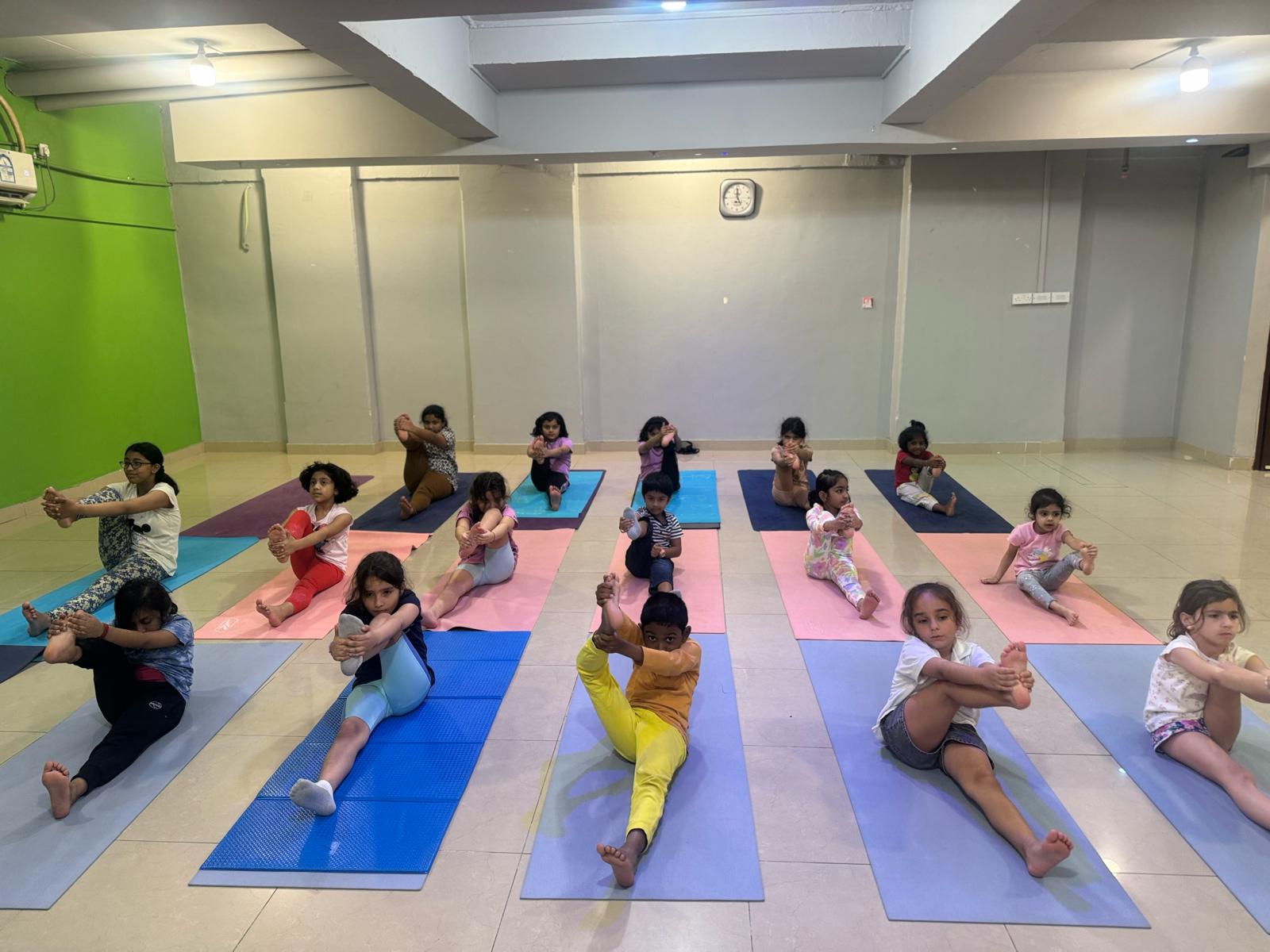Kids Yoga
Kids yoga is a fun and engaging way for children to develop physical and mental well-being. It incorporates poses (asanas), breathing exercises (pranayama), and relaxation techniques tailored to the needs and capabilities of children. Here are some key benefits and elements of kids yoga:
Benefits of Kids Yoga
1. Physical Fitness: Improves strength, flexibility, balance, and coordination.
2. Mental Health: Reduces anxiety, improves focus, and enhances mood.
3. Emotional Regulation: Helps children understand and manage their emotions.
4. Social Skills: Encourages teamwork, cooperation, and respect for others.
5. Mindfulness: Teaches children to be present and aware, enhancing their ability to cope with stress.
Yoga and wellness programs
Yoga and wellness programs focus on enhancing physical, mental, and emotional well-being through a combination of physical postures (asanas), breathing exercises (pranayama), meditation, and lifestyle practices. Here are some key elements often included in these programs:
1. Yoga Classes:
• Hatha Yoga: Emphasizes physical postures and alignment.
• Vinyasa Yoga: Focuses on flowing sequences coordinated with breath.
• Ashtanga Yoga: A rigorous, structured practice with a set sequence.
• Yin Yoga: Targets deep connective tissues with long-held poses.
• Restorative Yoga: Uses props to support the body for deep relaxation.
2. Meditation and Mindfulness:
• Guided meditation sessions to reduce stress and enhance mental clarity.
• Mindfulness practices to improve focus and awareness in daily life.
3. Breathing Exercises (Pranayama):
• Techniques to control and enhance the breath, promoting relaxation and energy.
4. Workshops and Educational Sessions:
• Topics may include nutrition, stress management, holistic health, and more.
5. Wellness Activities:
• Activities such as nature walks, journaling, and creative arts to support overall well-being.
6. Nutrition and Diet Counseling:
• Guidance on healthy eating habits and personalized diet plans.
7. Holistic Therapies:
• Practices like Ayurveda, acupuncture, or massage therapy to complement yoga.
8. Community and Support:
• Group activities and discussions to foster a sense of community and shared learning.


